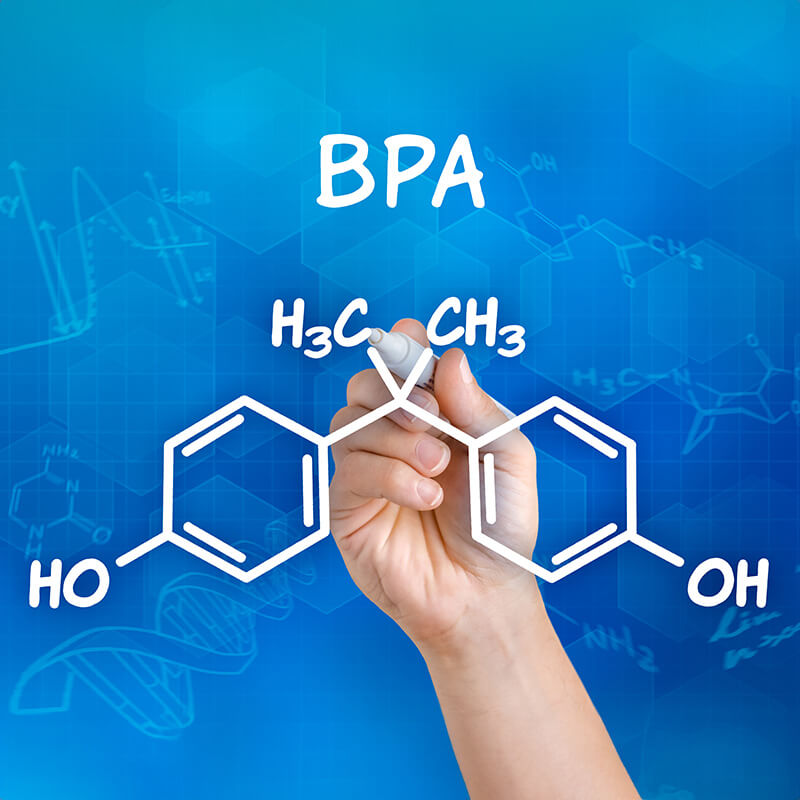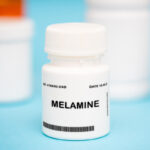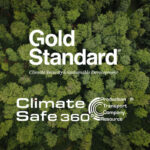BPA-free containers are becoming increasingly important as more people become aware of the health risks associated with Bisphenol A (BPA). This article highlights the benefits of BPA-free containers and explains why they are a sustainable choice.
What is BPA?
Bisphenol A (BPA) is a chemical compound primarily used in the production of polycarbonate plastics and epoxy resins. BPA was first commercially used in the 1960s and has since become widespread because BPA-based plastics are stable, lightweight, and easily colored. BPA is found in a variety of products, including water bottles, food containers, can coatings, lids, and more. BPA has also been detected in products for babies and young children. However, in the EU, the manufacture and sale of baby bottles and pacifiers made of BPA were legally banned in 2011. Manufacturers voluntarily removed these products from the market.
What does BPA-free or free from BPA mean?
The term “BPA-free” refers to products that are manufactured without the use of Bisphenol A (BPA). Due to the health risks associated with BPA, the demand for BPA-free alternatives has increased. Labeling packaging and products as “free from BPA” or “BPA-free” helps consumers avoid BPA. Because BPA has reproductive and health-damaging properties.
Health Risks of BPA
BPA can leach in small amounts from plastic containers into food and beverages. For example, if a BPA-based water bottle is warmed by sunlight, BPA leaches into the water. BPA also has negative effects on the environment and other organisms. Studies have shown that BPA can act hormonally and disrupt the endocrine system. This can lead to the following health problems:
Hormonal Disruptions: BPA acts as an endocrine disruptor and can affect the hormonal balance in the body.
Developmental Issues: BPA can impair the growth and development of children and fetuses.
Increased Risk of Chronic Diseases: There is evidence that BPA may be linked to cardiovascular diseases, diabetes, and certain types of cancer.
Benefits of BPA-free Products
BPA-free means that a product is safer concerning the potential health risks associated with BPA. BPA-free products have many advantages:
Safety in Daily Use: BPA-free products offer a healthier option for contact with food and beverages.
Environmental Friendliness: Many BPA-free materials are recyclable or biodegradable, making them more environmentally friendly.
Consumer Trust: Labels like “free from BPA” or “BPA-free” create trust among consumers. Additionally, many people have environmental concerns besides the health burden caused by BPA.

Which Products are Free from BPA?
BPA-free materials are now used in a variety of products, including:
Food Containers and Water Bottles: Many manufacturers offer BPA-free alternatives to avoid BPA exposure.
Baby Products: Baby items are often made from BPA-free materials to ensure the safety of babies and young children.
Medical Devices: The medical technology sector is also increasingly relying on BPA-free materials.
BPA-free Reusable Containers
We specialize in the production of reusable containers for food and beverages made from renewable raw materials for the gastronomy and food service sectors, which are free from BPA. These reusable containers such as soup cups, menu plates, boxes, tableware, and other containers offer an environmentally friendly alternative to traditional plastic containers and thus have many advantages:
Safety: Our sustainable reusable containers are free from BPA, food-safe, and thus suitable for use with food without concern.
Sustainability: Our reusable containers are made from 98 percent recyclable and biobased materials such as lignocellulose and bioplastic, which are processed into the composite material Bio-Compound. Bio-Compound is free from BPA and helps conserve finite resources like petroleum.
Reusability: The durable reusable containers help reduce waste, are dishwasher safe, and can be cleaned and reused many times.
Conclusion on BPA-free Food Packaging
BPA-free or free from BPA means that a product is manufactured without Bisphenol A, making it safer for contact with food and beverages. BPA-free products offer many health and environmental benefits and are thus an environmentally conscious and sustainable alternative for disposable packaging in the food service sector, at events, in cafeterias, canteens, and in gastronomy in general.







